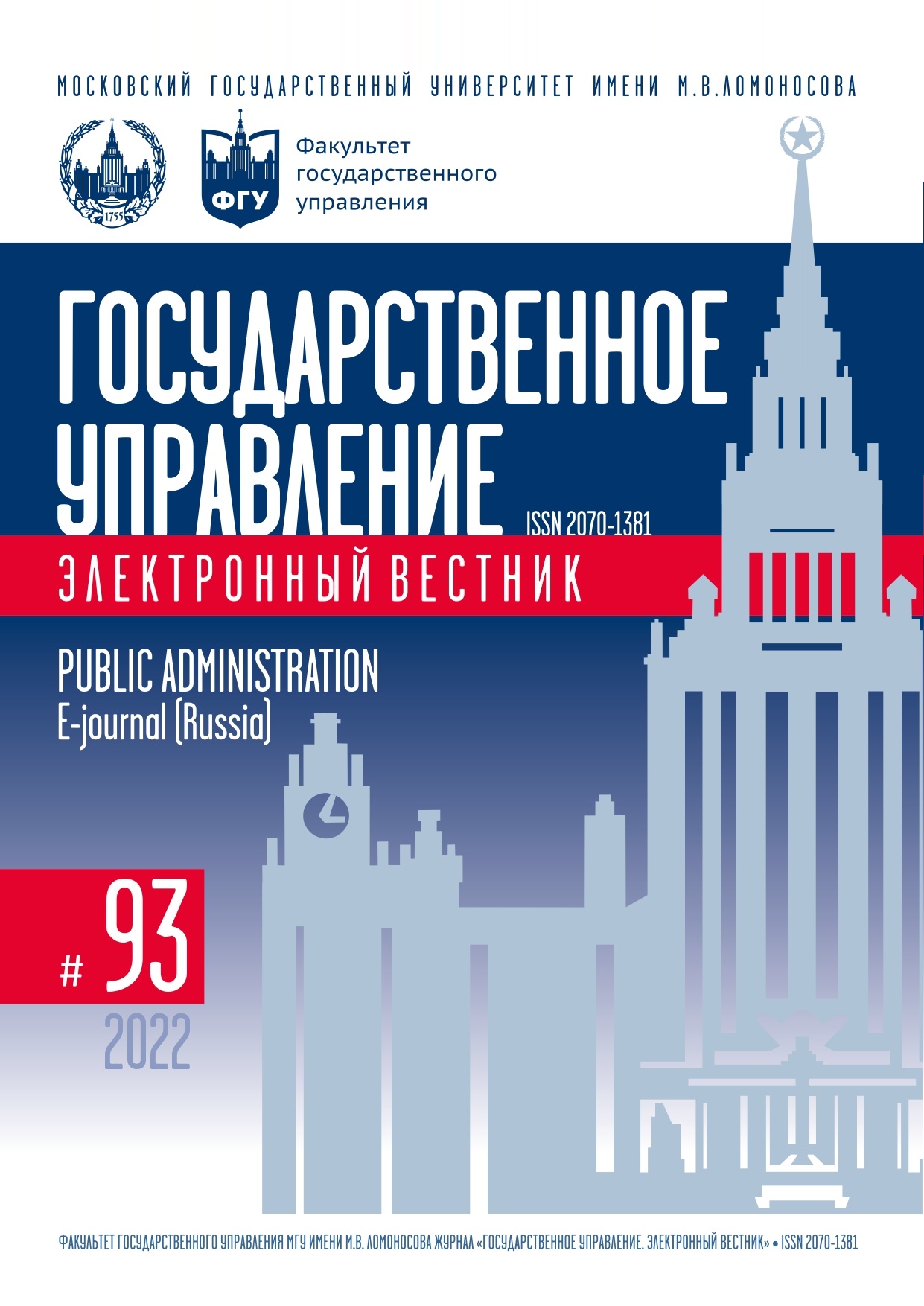Retrospective of Relations between the Russian Federation and the Federal Republic of Germany
Keywords:
Economic relations between Russia and Germany, sanctions, import, export, foreign direct investmentAbstract
The article analyzes the development of trade and economic relations between Russia and Germany. The work gives a brief historical background but special attention is paid to the modern period of cooperation between Russia and Germany since the 1990s, which is characterized by an active pace of development. Four key stages in the development of relations are distinguished: “Search for forms of interaction” in 1991–2000; “Convergence through interweaving” in 2000–2008; “Partnership for Modernization” in 2008–2014; “Containment and Dialogue” since 2014. Each stage reflects the political and economic features of building partnerships between Russia and Germany in many areas: investment, engineering, innovative technologies, energy, chemical industry, agriculture and other industries, as well as key circumstances that influenced their development, and a number of reasons and factors that reveal their essence. Due to the implementation of sanctions since 2014, as well as the global decrease trend in the economy defined by COVID-19 pandemic, the strengthening of sanctions pressure since February 2022, trade and economic relations between Russia and Germany have undergone negative changes and entered a new stage of development. Recent destructive trends do not exclude the fact of interdependence and complementarity of economies, which determines the particular relevance of studying the retrospective and current state of trade and economic cooperation between two countries. However, the further development of relations between the states is in question and the perspectives for building a dialogue depend on the personal factor in interstate relations, which is proven by historical experience.
References
Германия 2014. Часть 1. Экономика / под ред. В.Б. Белова. М.: Ин-т Европы РАН, 2015.
Гусаков Н.П., Жарикова М.В. Влияние санкций на германо-российские торгово-экономическое и инвестиционное сотрудничество // Вестник Российского университета дружбы народов. Серия: Экономика. 2016. № 4 С. 20–30.
Европейский Союз в XXI веке: время испытаний / Под ред. О.Ю. Потемкиной, Н.Ю. Кавешникова, Н.Б. Кондратьевой. М.: Ин-т Европы РАН: Весь мир, 2012.
Егоров А.И. Связи России и Германии в инвестиционной сфере: Федеральный и региональный уровни (1990-е–начало 2000-х гг.) // Вестник НГТУ им. Р.Е. Алексеева. Серия: «Управление в социальных системах. Коммуникативные технологии». 2012. № 4. С. 56–63.
Ермаков Н.П. Становление, состояние и перспективы развития российско-германских торговых и инвестиционных отношений // Экономический вестник Ростовского государственного университета. 2008. Т. 6. № 1–2. С. 119–122.
Ершов М. Россия и мир: насколько устойчив экономический̆ рост? Риски и препятствия // Вопросы экономики. 2017. № 12. С. 63-80. DOI: 10.32609/0042-8736-2017-12-63-80
Максимычев И.Ф. Германский фактор в европейской политике России. М.: Институт Европы РАН. 2004.
Проценко С.Е. Отношения России и ФРГ: история и перспективы // СКИФ. Вопросы студенческой науки. 2019. № 8 (36). С. 113–119.
Тимофеев И.Н. Экономические санкции как политическое понятие // Вестник МГИМО-Университета. 2018. № 2 (59). С. 26–42. DOI: 10.24833/2071-8160-2018-2-59-26-42
Aalto P., Forsberg T. The Structuration of Russia’s Geo-Economy under Economic Sanctions // Asia Europe Journal. Vol. 14. 2016. P. 221–237. DOI: 10.1007/s10308-015-0446-6
Galtung J. On The Effects of International Economic Sanctions with Examples from the Case Rhodesia // World Politics. Vol. 19. Is. 3. 1967. P. 378–416. DOI: https://doi.org/10.2307/2009785
Downloads
Published
Most read articles by the same author(s)
- Jia Baoxin, Svetlana V. Senotrusova, Instruments of State Regulation of International Trade and Forest Management in China , Public Administration. E-journal (Russia): No. 100 (2023)
- Svetlana V. Senotrusova, Iana V. Sibiriakova, Parallel Import and Other Economic Measures as Response to Sanctions against Russian Import , Public Administration. E-journal (Russia): No. 96 (2023)
Similar Articles
- Vladimir V. Romanenko, Igor N. Molchanov, Externalities of Sanctions Impact on Russian Economy , Public Administration. E-journal (Russia): No. 104 (2024)
- Svetlana V. Senotrusova, Iana V. Sibiriakova, Parallel Import and Other Economic Measures as Response to Sanctions against Russian Import , Public Administration. E-journal (Russia): No. 96 (2023)
- Sergey E. Trofimov , State Policy of Import Advance in the Russian Oil and Gas Complex , Public Administration. E-journal (Russia): No. 99 (2023)
- Vladislav S. Glaziev, Stimulating Investment Activity as а Key Element of Managing Modern Russian Economy Development , Public Administration. E-journal (Russia): No. 92 (2022)
- Georgy A. Shevkunov, The Russian Revolution (1917): External Factors of Influence , Public Administration. E-journal (Russia): No. 105 (2024)
- Igor A. Matveev, Drivers of Arab Countries’ Growing Interest to the Eurasian Geopolitical Space , Public Administration. E-journal (Russia): No. 104(S) (2024): The Concept of Russian Civilization: New Trends in Scientific Discussions
- Ekaterina I. Shumskaia, Critique of Neoclassical Premises of Modern Economic Policy in the Context of Human Potential Realization , Public Administration. E-journal (Russia): No. 94 (2022)
- Egor V. Vakhturov, Lyubov N. Orlova, Priorities of Financial System Regulation in the Context of New Challenges for Russia , Public Administration. E-journal (Russia): No. 105 (2024)
- Vyacheslav A. Nikonov, A New Member of BRICS — Egypt , Public Administration. E-journal (Russia): No. 105 (2024)
- Marianna V. Kudina, Azret Sh. Kasymov, Venture Capital in the Context of ESG Transformation , Public Administration. E-journal (Russia): No. 93 (2022)
You may also start an advanced similarity search for this article.




